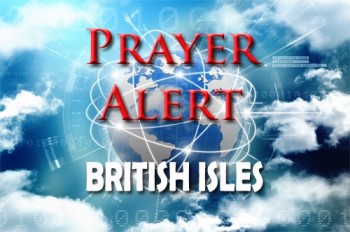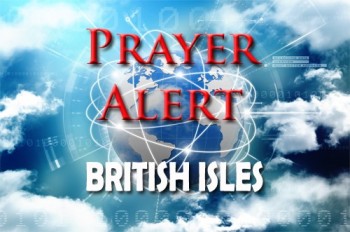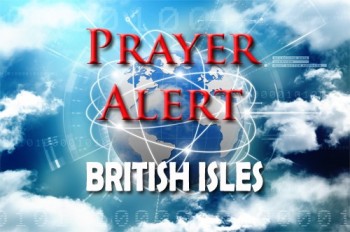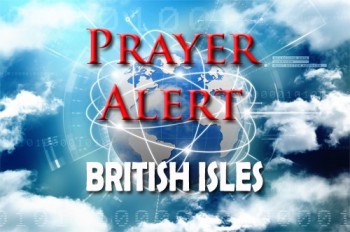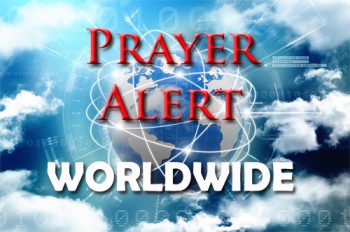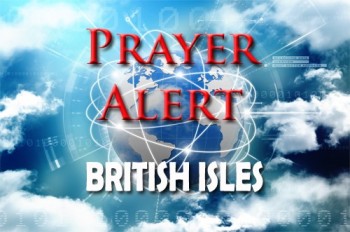Displaying items by tag: United Kingdom
Scotland: mission pioneers spreading the Good News
New ways of engaging people with faith are being pioneered by the Church of Scotland in Ayrshire. It is sending teams of missioners out into the community to share the Good News of Jesus Christ and to build new worshipping communities. Team leader Revd Maggie McTernan said the aim is to connect with people who do not want to worship in traditional ways. ‘There's a challenge of declining attendance at our traditional churches on Sunday mornings. But that doesn't necessarily match with a decline in interest in matters of faith. There are people who have an interest and a concern about faith, but for a whole host of reasons they won't go to church on a Sunday morning. Maybe it's not what they're used to or maybe they have other commitments.’ The vision is an intergenerational church sharing activities, experiences and worship in new ways: Messy Church, prayer walks, sports-based wellbeing projects, online, digital parish and a disability project so that the church is fully inclusive.
BLM activists fear for their lives
‘If people constantly say they want to kill you, you don't feel safe at all’, says Aima, a Black Lives Matter (BLM) activist. Standing up for the rights of black people has a high price for many protesters in the UK. But lack of trust in the police means many threats go unreported. That trust has been eroded by decades of racism. An inquiry into botched investigations into the murder of black teenager Stephen Lawrence found institutional racism in London's Metropolitan Police. Despite some changes since then, black people and ethnic minorities are still disproportionately represented when it comes to police checks, imprisonment, and deaths in custody. A 2020 survey by the charity ‘HOPE not hate’ revealed 65% of people from ethnic minority backgrounds felt the police were biased against their community. When a new generation of activists addressed the UK’s racial divide they were met with curiosity and sympathy, but that turned into defensiveness and outright denial from some in Britain's ruling class and opinion influencers.
Christians called to offer sanctuary to refugees
Christians and others are being encouraged to welcome a refugee or asylum-seeker into their homes as part of a new initiative. The Hospitality Pledge was launched this week and will work with international charities and the church to speak up for the displaced. It's being led by Dr Krish Kandiah with the aim of encouraging people to offer sanctuary to those who are persecuted or fleeing conflict as offering sanctuary is at the heart of the Gospel. ‘Christians are called to show mercy and compassion to those that are in need. Jesus once said, I was a stranger, and you welcomed me. In welcoming, to the least of those in our society is a demonstration of the love and compassion of Jesus. Right now our nation has an interesting relationship with asylum and welcoming refugees.’ Dr Kandiah assured enquirers that there will be a lot of support available for anyone who decides to accommodate a refugee or asylum-seeker.
Disabled people forgotten during Covid
Over 3,300 people took part in BBC research into the impact of the pandemic on the lives of disabled people. Most said their disability had worsened and over 2,400 said routine, often vital, medical appointments had been cancelled. Disability charity Scope said the findings confirmed that disabled people's needs ‘had been forgotten’. There were young autistic people who had attempted suicide because they could no longer cope with drastic changes; others were isolated and alone, their support networks gone or hours of care cut. A family told how care had been almost stopped for their disabled daughter, while her father, who had had Covid, was offered a range of treatments. Her cochlear implant needs retuning regularly but has not been checked for two years. Her physiotherapy has not continued, and her walking frame no longer fits. Her last eye test was over the phone.
Royal reunion
The Dukes of Cambridge and Sussex met on 1 July to unveil a statue of their mother, Princess Diana, on what would have been her 60th birthday. It was William and Harry's first appearance together since the Duke of Edinburgh's funeral in April. The statue, commissioned by the brothers in 2017, will stand in Kensington Palace's redesigned Sunken Garden. At the time, they said they hoped it would help visitors to the palace ‘reflect on her life and her legacy’. Also the royal princes have reportedly bonded over England's Euros victory over Germany by exchanging texts and speaking before their reunion.
Tech giants being investigated
Amazon and Google are under UK competition watchdog scrutiny regarding fake reviews on their platforms. The competition regulator is probing the tech giants in relation to breaches of consumer protection law. Their ‘specific concerns’ were raised about whether the two companies were ‘doing enough’ to detect ‘fake and misleading reviews or suspicious patterns of behaviour.’ An initial sweep, begun in May 2020, cast doubts on whether the firms investigate and remove such reviews, and if they impose ‘adequate sanctions’ to deter reviewers or businesses from violating rules on honest posts - in particular by taking action against repeat offenders. ‘Our worry is that millions of online shoppers could be misled by reading fake reviews and then spending their money based on those recommendations’, said the watchdog. Last September, Amazon had to delete 20,000 product reviews, written by seven of its top UK reviewers, following a Financial Times investigation discovering reviewers were paid to post thousands of five-star ratings.
Why can’t amateur singers sing together?
Theresa Villiers MP asked Sajid Javid, ‘Now that thousands of people are allowed to gather together at a football match to shout and cheer as much as they want, is it not time that we allowed congregations in church to sing hymns together?’ The new health secretary replied, ‘I can tell you that that is certainly what I would like to see; it is my intention to allow that to happen as soon as possible. When it does, I hope we can sing a hymn together.’ During the debate, one exasperated comment was, ‘As a member of the parliament choir, I want to meet with other members in a socially respectable way to sing the music that inspires us and to lead our lives as close to normality as we can. What we want is a road map and a timescale.’
Czech Republic, USA, UK: uncommon tornadoes
On 25 June five people were killed and hundreds injured as a tornado wreaked havoc in the Czech Republic, with tennis-ball-sized hailstones hitting several villages in South Moravia. In the village of Luzice 120 houses were destroyed or damaged, roofs ripped off, windows blown out, cars overturned and debris scattered through the streets. Eight people were hospitalised after a tornado hit Chicago suburbs and damaged over 130 homes. In England a tornado that hit Barking left the area looking as if a bomb had gone off. Houses were seriously damaged, walls knocked down, and cars destroyed. Flash flooding caused trees and debris to be blown around the streets. There were also flash floods in Somerset.
Updated funding reforms needed for social care
Social care organisations want Boris Johnson to fix the broken care system.They want long overdue changes to funding social care and ‘immediate’ cash injections to cover costs incurred during the pandemic. Councils need money for new technology and fairer deals for care staff. In 2019 Boris Johnson vowed to fix the funding crisis ‘with a clear plan we have prepared’, but discussions around changing costs are still ongoing. Social care is not free to vulnerable people with assets over £23,500. Below that they receive council help. Consequently, thousands of people annually must sell their homes to pay for their care. Charities warned that ‘every week of dithering means an extra 13,000 pensioners being denied vital help’. It is believed the PM supports a £50,000 lifetime cap on care costs to shield pensioners from catastrophic bills. However Rishi Sunak is concerned over finding £10billion a year to pay for this.
Scotland: drug addiction
At the end of 2020, national records reported that over 1,200 people had died of a drug-related death, putting Scotland at the top of the chart for drug-related deaths in Europe. The report painted a heart-breaking picture of loss and pain in so many families and communities across Scotland. Evangelical Alliance Scotland, Bethany Christian Trust, and Cross Reach carry out amazing work caring for some of the most vulnerable people in our communities, but they want to find out how they can further support the work of churches and agencies that focus on drug addiction. Therefore they are currently carrying out a survey with key questions around how drug addiction affects people's churches and how they can together provide sustainable solutions.

